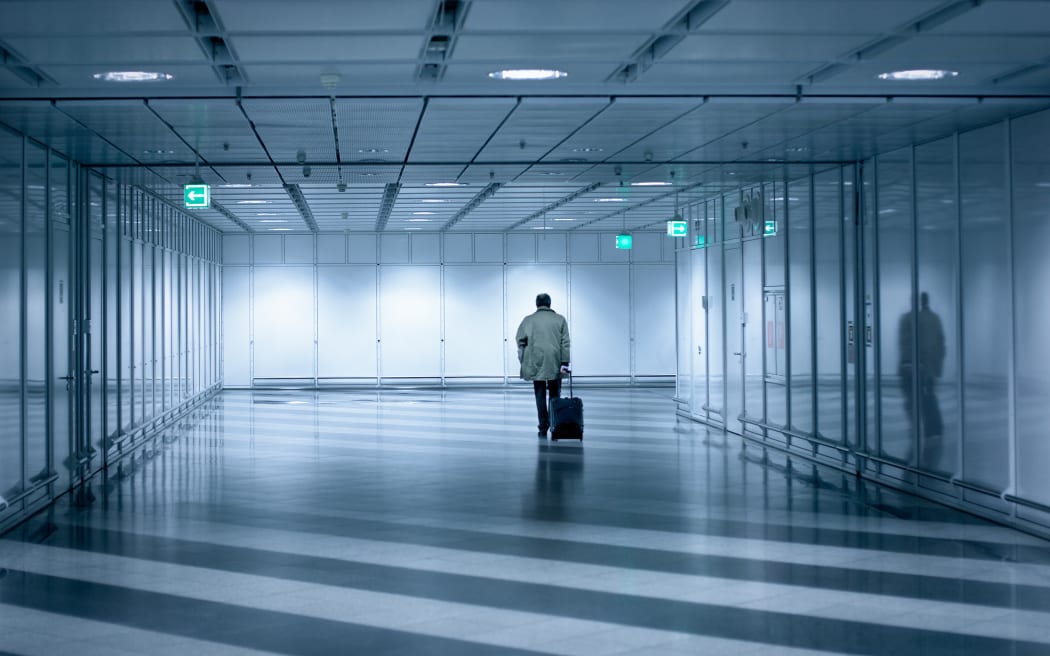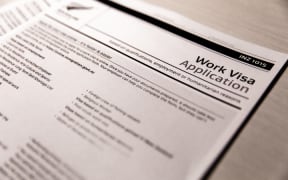
File photo. Photo: SFC
A Vietnamese woman who successfully fought deportation from New Zealand feared she would be harmed by her family who were disappointed that her relationship with a Kiwi man did not reward them financially.
The 41-year-old Vietnamese woman ended up as a single parent in New Zealand when her marriage ended after she moved here with the children to be with her husband, and then found herself fighting possible deportation.
She was one of 203 people to appeal to the Immigration and Protection Tribunal against possible deportation last year, and one of the 114 to have succeeded in convincing authorities to let her stay.
Immigration New Zealand figures show that the number of people deported from New Zealand dropped 80 percent in mid-2022 on the number deported in the year 2017-18, but in the last financial year to mid-2023, the figure had climbed to 212 deportations from 128 the previous year.
In the past five years, a total of 5511 people left New Zealand, either through being deported, through self-deportation after being given notice or through voluntary departure before being given notice and knowing they were unlawfully here.
National manager of immigration compliance Stephanie Greathead told NZME the drop in the number of deportations between 2020 and 2022 was because of the impact of Covid-19.
She said border closures made deportations more challenging, which impacted the statistics over this period.
"When borders were closed deportations focused on criminal deportees, and enabling those who were unlawful in New Zealand and wanted to return to their home country to do so," she said.
INZ used the powers it had under the Immigration Act 2009 to remove people from this country. Steps in the process included serving deportation liability notices and deportation orders to people because of criminal activity or other public interest factors or from being unlawfully in New Zealand through overstaying a visa.
Most people who overstayed their visa were previously on a visitor visa, INZ figures showed. Most people left voluntarily when contacted.
Christchurch barrister Rupert Ward, who specialises in immigration and deportation, said a liability notice preceded an order for deportation.
"Before that there are multiple warnings. To get to the stage of a deportation liability notice then something has happened to reach that point.
"Deportation only occurs once all avenues are exhausted," Ward said.

Christchurch barrister Rupert Ward. Photo: Supplied / NZ Herald
Appeals against these notices were lodged with the tribunal which last year dismissed 67 applications against deportation notice, declined a further 21 and decided it had no jurisdiction to hear one application - a humanitarian appeal by a citizen of the Czech Republic.
The tribunal is administered by the Ministry of Justice and is chaired by a district court judge.
Ward said the human stories behind deportation were complex and as broad as human experience.
The 41-year-old Vietnamese woman met the New Zealander in Vietnam in 2014. They were married three years later, and within another three years, they separated, after she and their two young children had followed him to New Zealand in February 2020.
The woman was declined an application for refugee and protection status in March last year and then appealed to the tribunal against the likelihood she would then be deported.
She did not want to return to Vietnam out of fear that her family would physically and psychologically harm her because she was a single mother with no family support.
The woman was ultimately granted a resident visa, despite the tribunal finding that her fears of persecution were not well-founded.
The appeal focused on whether the woman's deportation and its effect on her two New Zealand citizen children would give rise to exceptional circumstances of a humanitarian nature that would make it unjust or unduly harsh for her to be required to leave New Zealand.
The tribunal found that deportation would separate her from her two young children for whom the loss of contact with their mother would likely have a serious detrimental effect on their emotional and psychological wellbeing.
Ward said there were often sad stories accompanying deportation, with some finding themselves here through a family relationship when even a small mistake might result in someone getting a liability notice.
"Often mistakes are made unintentionally that have serious consequences."
He also knows of instances when Immigration New Zealand "bent over backwards" to try to find a way to help.
One client - a mother of three children was constantly facing the threat of deportation, but who was not well, and neither was she, like some others, capable of comprehending the complex rules and requirements around immigration and what was required of her.
"They simply don't understand, so what do you do? Send that person back to wherever and leave the children without a mother?"
Ward said the deportation team at immigration was extremely sympathetic to the client's position and did their best to find a way to help her, but it was not always the case. Ward said he found inconsistencies in the approach from different immigration officers.
He said that while a small mistake might result in someone getting a liability notice if someone was convicted of a criminal offence, it was to be expected.
"Cases of serious illegality are less blurred but the families often did no wrong and they might have to see the father deported, for example," Ward said.

File photo: New Zealand authorities put a higher emphasis on not dividing families than Australia did, said Ward. Photo: 123rf.com
A 48-year-old citizen of Kiribati who became a New Zealand resident in February 2018, had his appeal against deportation declined after he went to jail for raping a young girl.
The man, whose name was suppressed, appealed deportation on humanitarian grounds after he was convicted and sentenced to almost nine years in prison in May 2021, for serious offences, including performing an indecent act on a young girl, committed between February and September 2019.
The man first visited New Zealand on a work visa between July and October 2012, before returning to Kiribati.
Two attempts to gain residence through the Special Policies (Pacific Access Category) were unsuccessful until January 2018 when he, his wife and their three children were granted residence.
The offending happened the following year, after which the man was served with a deportation liability notice in August 2022, which he then appealed against on several grounds including the interests of his children, his wife's health, and the situation in Kiribati that he would return to, that would make it unjust or unduly harsh for him to be deported from New Zealand.
The tribunal ultimately found there were exceptional circumstances of a humanitarian nature but they did not make it unjust or unduly harsh for the appellant to be deported from New Zealand, and the appeal was declined.
Ward said that quite often a person deported was not barred from reapplying from overseas.
"It's not the end of the story even if they are deported."
Ward, who was also an Australian barrister and had some involvement in Australian immigration, felt that New Zealand authorities put a higher emphasis on not dividing families than Australia did.
He said sending people back to New Zealand to survive without their children, without whānau, and no support opened the door to problems but he had also met people who had turned their lives around from the shock of deportation to New Zealand.
Ward said if someone facing deportation did not agree with the tribunal's decision (based on humanitarian grounds), they could appeal to the High Court, but again, it was a high test.
"It would not simply rehear the issues. One needs to generally establish a mistake of law or a public interest angle to justify a judicial review."
- This story was first published by the NZ Herald






